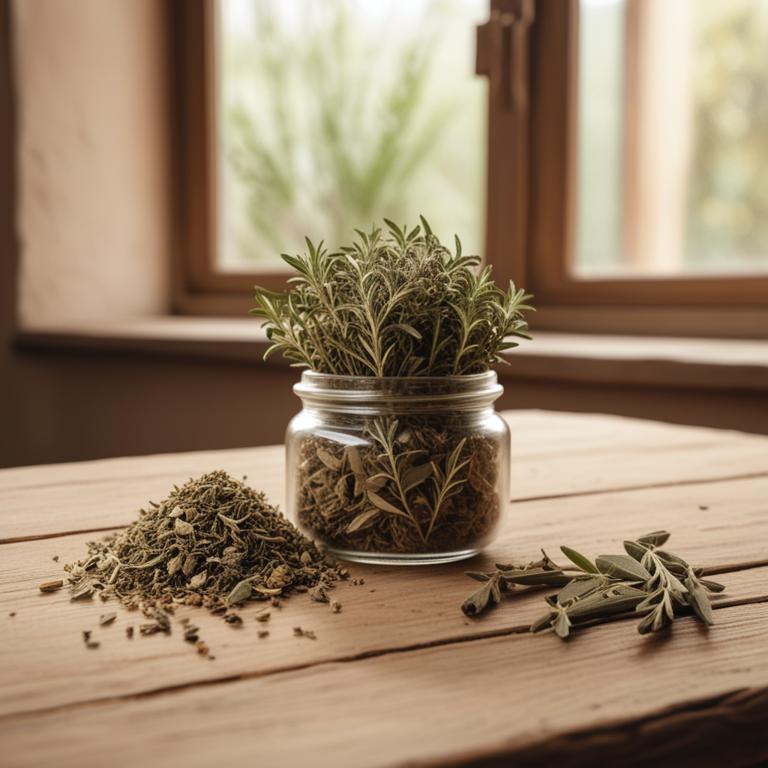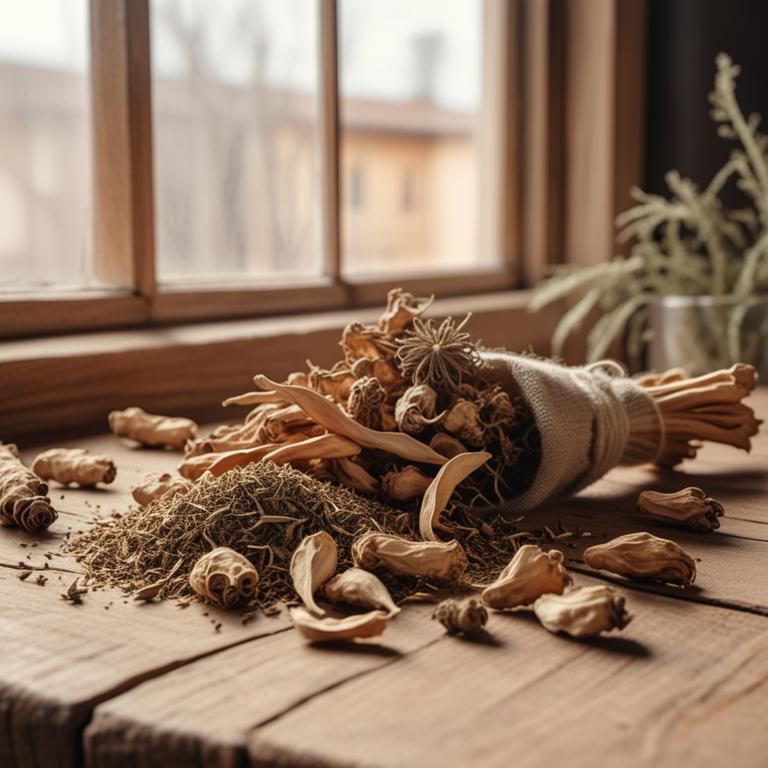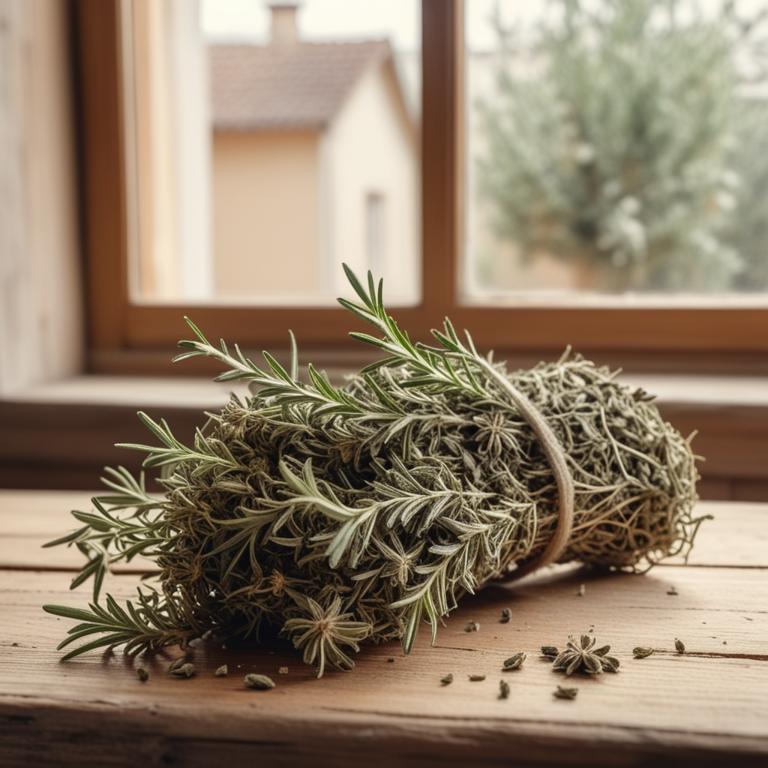Updated: Dec 1, 2024
Shingles Causes and Herbal Preparations for Relief
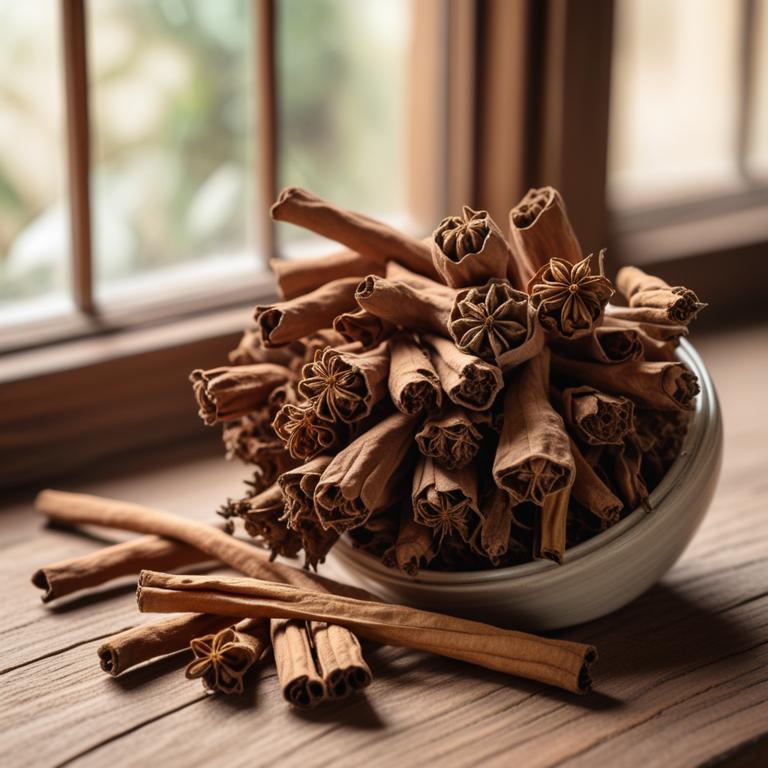
Shingles is a painful skin rash caused by the reactivation of the chickenpox virus.
It can appear anywhere on the body, but usually affects the torso or face. If left untreated, shingles can lead to long-term pain, fatigue, and emotional distress. The pain can be so severe that it affects daily life, making simple tasks like dressing or eating a challenge. Shingles is caused by the reactivation of the varicella-zoster virus, which is the same virus that causes chickenpox. This reactivation is often triggered by stress, age, or a weakened immune system.
As we age, our immune system weakens, making us more susceptible to shingles. Herbs like aloe vera, calendula, and chamomile have been used for centuries to soothe and heal skin irritations. They contain anti-inflammatory properties that can help reduce pain and inflammation associated with shingles. Turmeric, with its active compound curcumin, is also known for its anti-inflammatory and antiviral properties. Herbal teas, such as peppermint and ginger tea, can help with pain management and reduce stress. Applying topical creams or ointments made from aloe vera, calendula, or chamomile can also provide relief from shingles symptoms.
Some herbal supplements, like vitamin C and zinc, can help boost the immune system and prevent the spread of the virus.
Table of Contents
What leads to the onset of shingles?
The main causes of shingles are linked to the reactivation of a virus that's already present in the body.
This virus is called Varicella-Zoster, which is the same virus that causes chickenpox. When you had chickenpox as a child, the virus didn't disappear completely - it just lay dormant in your nervous system. As you get older, the virus can reactivate, causing shingles. One of the main reasons this happens is that our immune system weakens with age. When our immune system is strong, it can keep the virus under control, but as we get older, it becomes less effective, allowing the virus to reactivate.
Certain medical treatments can also trigger shingles. Cancer chemotherapy, for example, can weaken the immune system, making it more likely for the virus to reactivate. Similarly, people with HIV/AIDS have weakened immune systems, which makes them more prone to shingles. Age is another significant risk factor for shingles. As we get older, the risk of shingles increases, especially after the age of 50. Finally, people who have undergone organ transplants are also at a higher risk of shingles.
This is because the medications they take to prevent organ rejection can weaken their immune systems, making it more likely for the virus to reactivate.
What are the benefits of using herbal remedies for shingles?
Using herbs for shingles can be very beneficial.
One of the main advantages is that they can help reduce the pain and discomfort associated with the condition. These herbs have anti-inflammatory properties, which can help calm down the skin and reduce the itching and burning sensations. This can make it easier for people to get some rest and feel more comfortable.
Additionally, herbs can also help boost the immune system, which can help the body fight off the virus that causes shingles. Some herbs can even help reduce the risk of future outbreaks. They can also help alleviate stress and anxiety, which can be triggered by the physical pain and discomfort of shingles. This can be especially helpful for people who are struggling to cope with the emotional impact of the condition.
Using herbs in a gentle, consistent way may also help people get back to their normal activities faster.
What are the main medicinal herbs for shingles cure?

If you're dealing with shingles, you might want to consider using some herbs to help manage the symptoms.
Shingles is caused by the varicella-zoster virus, which can cause a painful rash and blisters. Zingiber officinale, or ginger, is a good option because it has anti-inflammatory properties that can help reduce pain and swelling. It also has a compound called gingerol, which has been shown to have antiviral properties that may help combat the virus. Another herb that might be helpful is Capsicum annuum, also known as cayenne pepper. The capsaicin in this herb can help reduce pain by blocking the production of a chemical called substance P, which transmits pain signals to the brain. It can also increase blood flow to the affected area, which can help speed up the healing process.
Echinacea purpurea, or coneflower, is often used to boost the immune system, which can help fight off infections like shingles. It's also anti-inflammatory, which can help reduce pain and swelling. Curcuma longa, or turmeric, is another anti-inflammatory herb that has been shown to have antiviral properties. It contains a compound called curcumin, which can help reduce pain and inflammation, and may also help combat the virus. Finally, Aloe barbadensis, or aloe vera, can be used topically to help soothe and calm the skin. It has anti-inflammatory and antiseptic properties, which can help reduce pain and prevent infection. It's worth noting that while these herbs may be helpful in managing shingles symptoms, they should not be used as a replacement for medical treatment.
If you're experiencing symptoms of shingles, you should consult with a healthcare professional for proper diagnosis and treatment.
What herbal remedies are used most frequently for shingles?
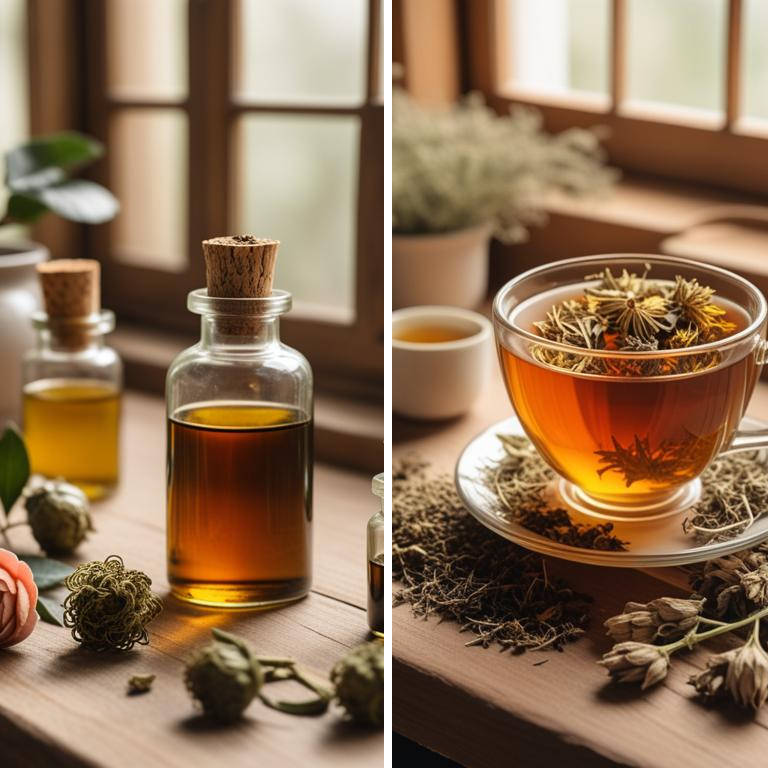
Herbal preparations can be very helpful in treating shingles.
One way to use them is by making a tincture, which is a concentrated liquid extract from herbs like ashwagandha and calendula. Tinctures can be applied topically to the affected area to reduce pain and inflammation. Another way is to make a salve, which is a thick paste made from herbs and oils. Salves can be applied directly to the skin to soothe and calm the area.
A decoction is a liquid extract made by boiling herbs like turmeric and ginger in water. It can be drunk to help reduce pain and inflammation, and to boost the immune system. Herbal infusions, like those made from herbs like chamomile and peppermint, can be drunk to help calm and soothe the body, reducing stress and anxiety that can make shingles symptoms worse. Herbal tea, made from herbs like licorice root and yarrow, can be drunk to help reduce pain and inflammation, and to promote healing.
Some herbs, like St John's Wort, also have antiviral properties that can help combat the underlying shingles virus.
Additional Resources:
Which herbs are not suitable for people suffering from shingles?
If you have shingles, it's best to be cautious with certain herbs.
For example, Ginkgo biloba can increase the risk of bleeding, which is not ideal when you're dealing with an open sore like a shingles rash. Valeriana officinalis, while generally used to help with sleep, can interact with some medications you might be taking to treat shingles, which could lead to side effects.
Hypericum perforatum, also known as St. John's Wort, can affect the way your body processes certain medications, including those used to treat shingles. Glycyrrhiza glabra, a licorice root herb, can cause blood pressure to rise, which might not be good if you have shingles-related pain.
Urtica dioica, commonly known as nettle leaf, can stimulate the heart and cause an increase in blood pressure, which might be problematic if you're taking medications to help with shingles symptoms.
FAQ
Are there any specific herbs that can prevent shingles?
Some research suggests that taking herbs like ashwagandha and turmeric may help prevent shingles.
These herbs have anti-inflammatory properties that may reduce the risk of shingles.
However, it's essential to note that more studies are needed to confirm their effectiveness.
Is it safe to use herbal remedies for shingles during pregnancy?
During pregnancy, it's generally not recommended to use herbal remedies for shingles.
Some herbs can cause complications or interact with medications. The safety of these remedies for the fetus and mother is not well understood.
If you're experiencing shingles symptoms, talk to your healthcare provider about safe and effective treatments.
Are there any herbs that can reduce the frequency of shingles?
Some research suggests that taking supplements like L-lysine and zinc may help reduce the frequency and severity of shingles.
L-lysine can help boost the immune system and zinc has antiviral properties.
These herbs work by supporting the body's natural defenses against the virus that causes shingles.
Related Articles
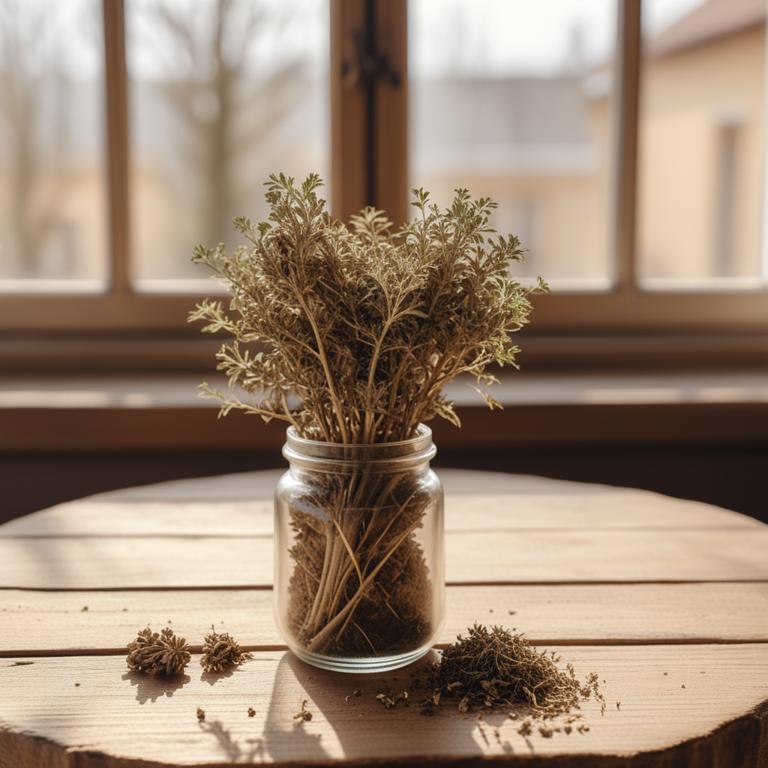
Causes and Remedies for Dark Lips: Medicinal Herbs and Herbal Preparations
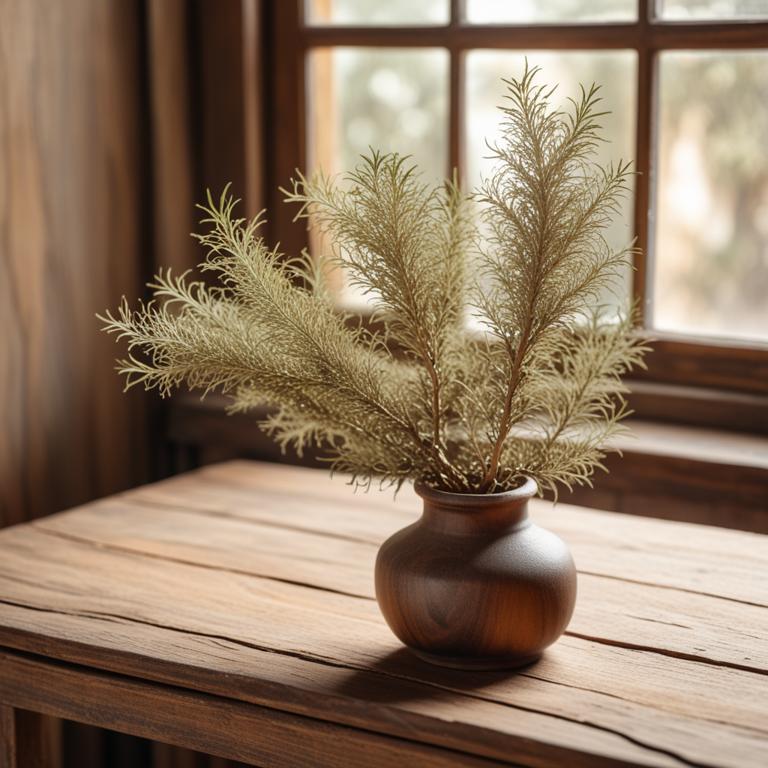
The Causes and Effects of Stye: Medicinal Herbs and Herbal Preparations for Relief
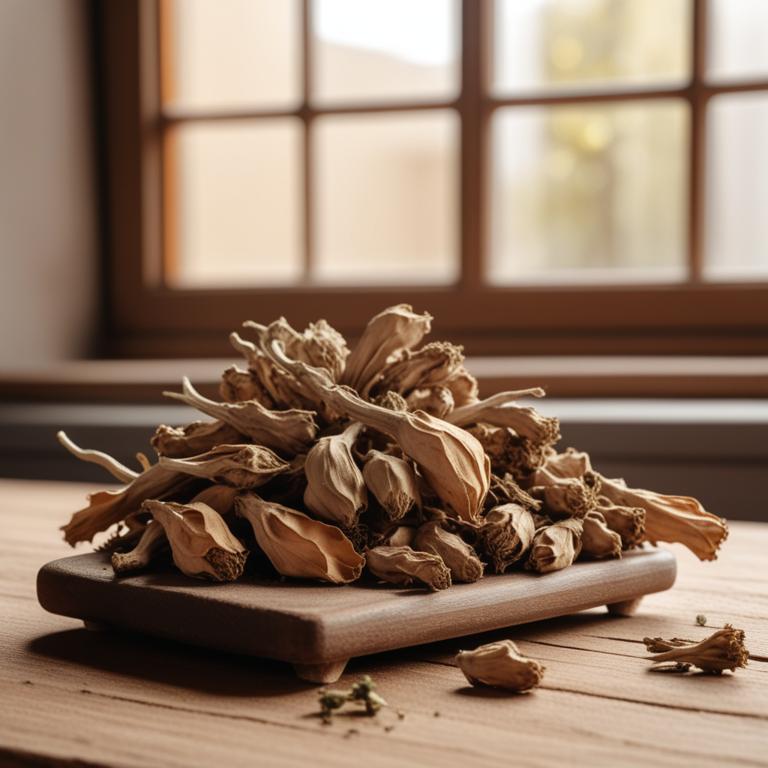
Understanding Pimples: Causes, Symptoms, and Natural Remedies with Medicinal Herbs and Preparations
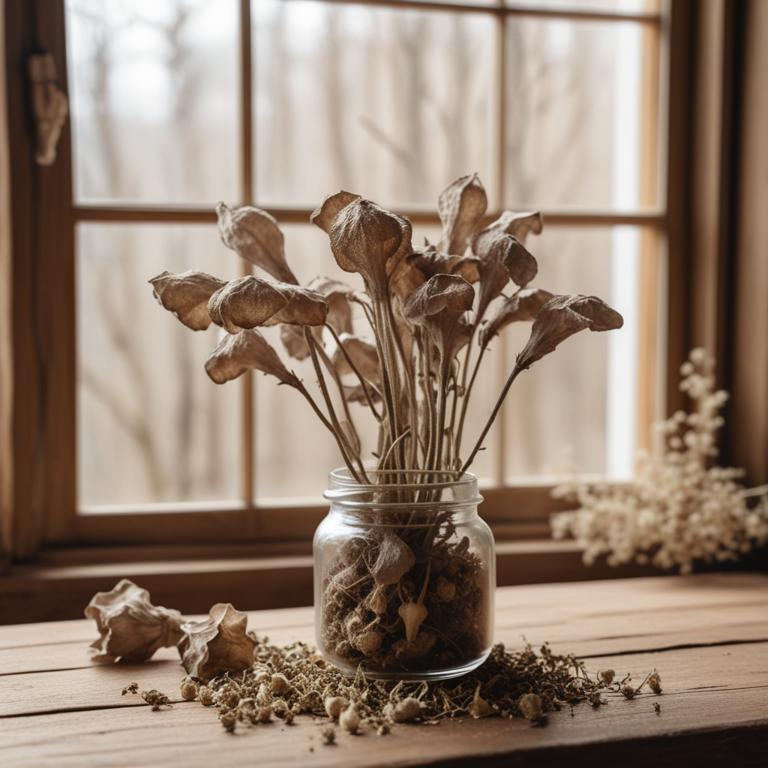
Itchy Eyes: Exploring Medicinal Herbs and Natural Treatments
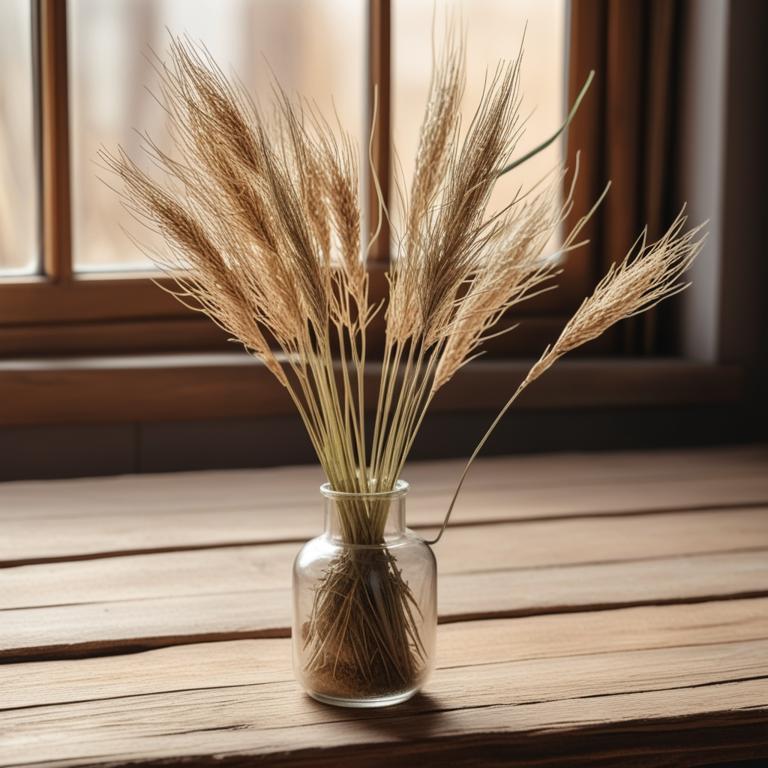
Dandruff: Causes, Symptoms, and Natural Treatments with Medicinal Herbs
